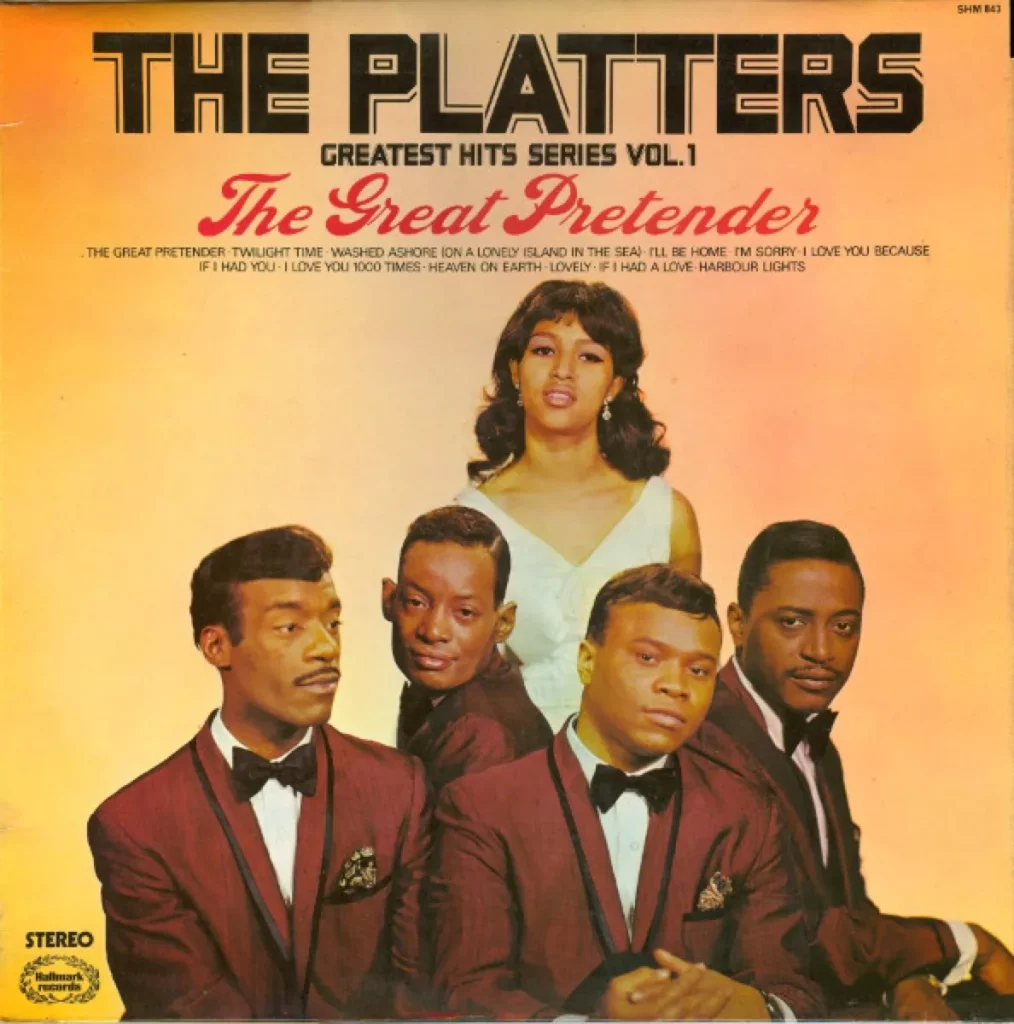
The Platters and “The Great Pretender”: A Timeless Ballad of Love and Loss
In the realm of pop music, there are songs that capture a moment in time, and then there are songs that transcend time, becoming anthems for generations. The Platters’ 1956 single, “The Great Pretender”, falls into the latter category. This iconic ballad, drenched in melancholic beauty and heartfelt emotion, has captivated listeners for over six decades, cementing its place as one of the most beloved and enduring songs in pop music history.
The Platters, an American vocal group formed in Los Angeles in the early 1950s, were known for their smooth harmonies and romantic ballads. Their music, heavily influenced by doo-wop and R&B, resonated with audiences worldwide, making them one of the most popular vocal groups of the era.
“The Great Pretender”, written by Buck Ram, became the group’s biggest hit, topping the Billboard Hot 100 chart in 1956. The song’s success can be attributed to its poignant lyrics and captivating melody. The narrative, sung with heartfelt sincerity by lead singer Tony Williams, tells the story of a lovestruck individual who masks their true feelings of heartbreak and loneliness behind a façade of happiness.
The opening lines, “Oh, yes, I’m the great pretender / Pretending that I’m doing well / My need is such I pretend too much / I’m lonely but no one can tell”, immediately set the tone of the song, establishing the protagonist’s inner turmoil and the lengths they go to conceal their true emotions.
The verses delve deeper into the protagonist’s emotional landscape, revealing their longing for love and acceptance while simultaneously acknowledging their inability to express their true feelings. The lyrics paint a vivid picture of someone trapped in a cycle of emotional pretense, desperately trying to maintain an outward appearance of strength and composure while battling inner turmoil.
The chorus, with its soaring harmonies and repeated refrain of “Oh, yes, I’m the great pretender”, serves as a powerful emotional release, allowing the protagonist’s vulnerability to shine through. The repetition of the phrase “great pretender” emphasizes the depth of their deception, highlighting the contrast between their outward persona and their inner reality.
The bridge, with its change in tempo and key, provides a momentary shift in mood, offering a glimmer of hope amidst the despair. The lyrics, “But when I see your smiling face / I can no longer hide / I’m fooling no one, ’cause I’m in love with you”, express a surge of genuine emotion, revealing a crack in the protagonist’s carefully constructed façade.
The song’s ending, with its repetition of the opening lines, reinforces the protagonist’s entrapment in their emotional pretense. The final note lingers, leaving the listener with a sense of melancholy and longing, underscoring the song’s timeless message about the complexities of love, loss, and the human condition.
“The Great Pretender” has remained a popular choice for artists across genres, with numerous cover versions by renowned singers like Elvis Presley, Roy Orbison, and Dolly Parton. The song’s enduring appeal lies in its ability to capture the universal human experience of emotional vulnerability and the struggle to reconcile one’s true feelings with societal expectations.
In conclusion, “The Platters’ The Great Pretender” stands as a timeless masterpiece, a ballad that continues to touch hearts and resonate with listeners worldwide. Its poignant lyrics, captivating melody, and heartfelt delivery have cemented its place in the pantheon of pop music history, ensuring that its legacy will continue to inspire and move generations to come.